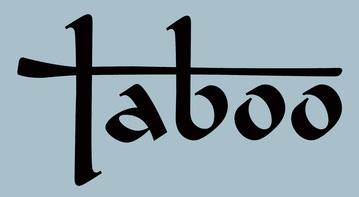I believe that the world will be a much better place if we flipped the conversation about privilege to one of gratitude, instead of one of guilt. In fact, I believe that in order to get on to solving the larger systemic problems, people must first be grateful for it. This is a counterintuitive approach, and I hope to show you exactly what I mean by it.
First, the Disclaimers
I am not aiming to be political, or solve the world problems.While I strongly and firmly believe in larger systemic problems that need to be solved, that’s not the point of this piece. I’m not talking about White Privilege, or Male Privilege, or any other privilege that is a collective, systemic, conversation. I’m talking about the individual privileges that we have, and how I believe we can address them in a way that better suits our goals of a fairer and more kind society.
So what’s the problem?
Privilege, as a concept, has become one that people use to bludgeon each other into feeling guilty. It is used to implicitly blame people and tell them that they do not deserve to be where they are, have what they have, do what they do. It tells people that they, by having the good fortune to be born and given what they have been given, are a part of the problem. It takes a massive societal problem, with institutions built around it and systems put in place, and pins it on an individual. In other words:
Privilege has become something that we use to tell people to feel guilty for things that they should be grateful for.
Why is that a problem?
Maybe it is fine. Maybe it is true. Maybe people don’t deserve to be where they are. Maybe they should feel guilty. Maybe it feels good to have someone who’s been given more from an unfair system. But here’s the thing. When you tell someone that they are, as an individual, guilty, undeserving, and attack the core of their being and beliefs, how are they likely to react? If I came up to you on the street and said those things to you, what are you going to do? Would you thank me and go about helping other people? Or would you get defensive, angry, reject it, and try to shift the blame on me? I’m lazy, ungrateful, incapable, undeserving? Sound familiar? It sure does to me. It sounds a lot like the news we hear today.
What’s a better approach?
We take a different angle. We recognize that our goal is to get people to recognize that they have been given incredible privileges, and hopefully inspire them to do something for those who have not. In other words:
I want you to be grateful for the privileges you have.
This seems counterintuitive to the current view, but I believe that it would be much more effective. If you help people be grateful for what they have, a lot of wonderful things happen.
- They recognize and appreciate their privilege
This is the first step to what people are trying to do all along. In order to convince people to help those who have less, you first need to show them that they have more. You need for them to recognize what they have been given, rather than focus on what they haven’t.
- They look down instead of up
Most people, when approached by the current approach, look up the chain. Wherever you started on the figurative yard-line of privilege, there’s someone further out. That person becomes an object of blame that passes the buck. But when you look down, you both see what you have, and you see who has not.
- They are more likely to do something about it
Now that you have people who recognize and appreciate what they have been given, regardless of whether they have a silver spoon or are grateful for spoons at all, they can’t help but see those less fortunate. It is impossible to be grateful for the things you have been given, without recognizing that others have not.
What’s in it for me?
This approach isn’t just for kicks. It isn’t just for saving the world. It’s also for saving yourself, and it contains a core part of my belief system. Here are three reasons you should try this out.
Gratitude = Happiness
Being grateful, and privilege gives you a thousand reasons to be grateful, makes you happy. Appreciating what you have been given, while recognizing that literally billions haven’t, even if some have been given more, is a key to happiness.
You can share this message with others
Helping others understand what they have been given in a positive way, is a wonderful way to live.
You will see greater opportunities
It’s impossible to see opportunities when you don’t recognize what has been give you through the privileges you do have.


